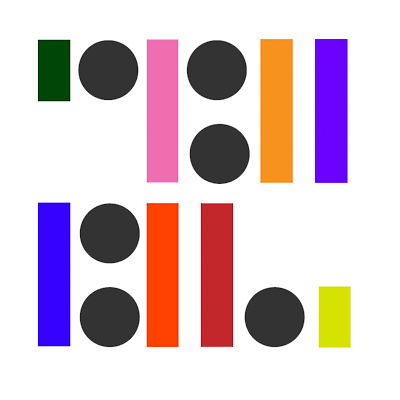interview with kit kuksenok
Kit Kuksenok is a visual artist with a research background in Human Computer Interaction, and experience as a code/data worker in both academia and industry.
Kit taught a class called Radical Imperfection in Self-Tracking at School of Machines this past November which was very well received. They were recently interviewed about their upcoming class Radical Imperfection in Time-Tracking by Martyna Marciniak, a curator and researcher in based in London.
How do you understand ‘emotional data’? How can we communicate our emotions to be readable to others?
Data about one's emotions is difficult to collect because our emotions are complex, and sometimes difficult to recognize and observe without judgment. In tracking, we can consider tracking affect - whether something feels pleasant or unpleasant; and how intense it is - or a more abstract concept, like "hopeful," "overwhelmed," "exhausted." What is so interesting about these conceptual categories is that observing them, trying to articulate them, and developing more personally-meaningful, nuanced categories actually helps us to experience and observe our emotions with more clarity. This is an idea that is well-explained in the book "How Emotions are Made" by Lisa Feldman Barrett, if you're curious; and I'll draw from it in the Week 2 session of the class.
When it comes to collecting and working with emotion data, the practice can have a positive and personal impact. In that case, I think the visualization of emotional data can be a particularly freeing task: what if you visualize what you learned about how to observe your emotions, as not just a catalogue of observations? Revealing our own process of self-discovery and building compassionate self-understanding can also make our emotions more readable to others.
Why do you think quantifying data about our time usage is important especially now?
I think, especially now, most people are over-worked and under-rested. There are so many reasons for this widespread exhaustion that are social, institutional, and structural. Sometimes, the interest in self-tracking comes from a desire for a little more control in an uncontrollable situation. No matter where the impulse comes from, I think there's a really important function that collecting this data can play.
Especially when I feel tired, or when I feel really demoralized about how I spend my time, it helps to create records. It allows me to see how even small episodes of time add up; and it allows me to have a much longer-term perspective on how my time is spent. Like in the answer to the last question, I think the process of observation itself plays a big role.
When we discuss time tracking methods, we will pay attention to the details of what is tracked, and the language around data collection, and ask: how can this be less demanding? How can this re-center rest and recharge as a critical aspect of creative work? The answers, as with most self-tracking, are very individual, and benefit from engaging with ideas and experiences of others.
In the context of working from home - when the leisure, creative time, work and chores blend how can we distinguish work and non-work - how can data help make us this distinction?
The process of observation is itself a crucial part of the experience, not just the means, of self-tracking. As I mentioned above, observing with the intent to deepen one's understanding of emotional experience can also help learn how to notice and stay with states like contentment, creative flow, curiosity, or other states that maybe feel fleeting or elusive. Tracking can also give you a sense of longer-term perspective.
In my experience - of my own data and others' - is that we can be very hard on ourselves in the moment, and to think, "I never do enough X!" when it is simply not the case. Tracking tools and techniques can help get a bit of clarity, and to give some sense of order and structure to an otherwise unintelligible, seemingly-monotonous stretch of time.
Ultimately, I think a tracking project is successful when the person doing the tracking sets these tools and techniques aside, and is able to observe themselves precisely, and more patiently.
What’s the most interesting/surprising personal data representation you have done or seen?
For me, the most surprising one has been visually very simple. Early in my sobriety, I tried out perhaps a dozen apps for tracking, curious if there was anything that would be really intriguing. There are many different kinds of tools to track abstinence from an undesirable habit; some are general, and some specific to recovery from substance addiction. One of them had time-based badges you could earn, and each had a progress bar. When I first saw those badges, especially the "20 years" one, I thought, "Wow, that's bold, this app thinks it's going to be around in 20 years!". But then it turns out, each day's check-in actually helps you make progress on all the badges, not just the next one!
So after the first few months, which were quite difficult, I scrolled down and I saw a few pixels filed in along the 20-year progress bar. And I think the feeling I felt in that moment, as a result of really just a sliver of color on a screen, was a really powerful experience. It was effective because of an unexpected and inspiring shift of scale: from one-day-at-a-time, to this bird's-eye view of what is possible.
Radical Imperfection in Time-Tracking will run online from 9. February every Tuesday from 7-9pm CET until until 9. March. To reserve a spot, visit: https://www.eventbrite.com/e/radical-imperfection-in-time-tracking-tickets-133855033007

